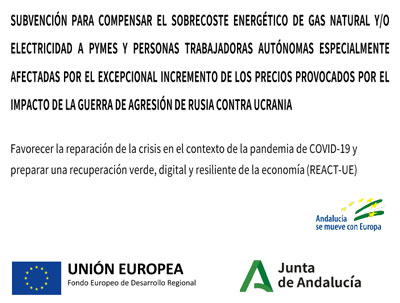
Taking a moment to thank someone in difficult situations or even in everyday conversations with colleagues can help us all feel happier. Ilene Berns-Zare, PsyD, is a life and leadership coach. She writes about navigating personal and professional life with resilience, meaning, mindfulness, and well-being.

How Did the Pandemic Change Kids’ Brains? A Family Therapist Weighs In
From a psychological perspective, it’s linked with a host of benefits, including improved happiness, decreased anxiety, and reduced depression. Studies have directly linked feelings of thankfulness with lowered blood pressure, enhanced immune response, and better sleep. Embracing gratitude is a powerful way to enhance our overall well-being and happiness. By making gratitude a regular part of our lives, we can improve our mental and physical health, build stronger relationships, and develop a more positive outlook. It is a mindset, a way of life that, when embraced, can positively transform our lives and workplaces.
How practicing gratitude will help

In other words, if people recognize and express the significance of their partners by gratitude, they may do even more for maintaining relationships. Spending just minutes writing a few lines expressing what you are thankful for before going to bed will help you sleep longer and better. Living a life of gratitude provides you the feeling of greater happiness and joy.
Closing thoughts: Why gratefulness is important (& 12 Ways to practice it)
Gratitude is more than just a fleeting feeling; it’s a powerful tool for enhancing our overall well-being. By making a conscious effort to notice and appreciate the good in our lives, we can foster a positive mindset that benefits not only ourselves but also those around us. Start small, with a simple «thank you,» and watch how your world transforms. From regular journaling to mindful meditation, a variety of techniques can help infuse gratitude into your life.

- In today’s video New Testament department chair and director of the BA-MA programs at Talbot School of Theology, Dr. Matt Williams, shares the importance of gratitude as a spiritual discipline.
- Practice saying thank you to yourself for who you are looking deep in your eyes.
- If you should decide to use a gratitude journal, I have one that you might like.
- Gratitude can be experienced both as a momentary emotion (a state) and as a more enduring aspect of your personality (a trait).
- Practicing gratitude can play a game-changing role as it has a positive impact on many aspects of our life, ranging from mental health to our relationships.
- The shadows of hardships simply make the light of gratitude shine brighter.
To effectively maintain a gratitude journal, allocate 15 minutes each day, at least three times a week, for a minimum of two weeks. Gratitude helps us cope with difficult situations by allowing us to focus on the positive aspects of our lives, even in the midst of challenges. This shift in perspective can foster resilience, enabling us to bounce back more quickly from adversity.
Three Things to Be Thankful For

Practicing gratitude has been much-touted to improve our health, and science appears to have the figures to back it up. In another study of 400 healthy people, participants who scored higher on a gratitude why is gratitude important in recovery test also had significantly better sleep. But with gratitude practice, there are no such risks – the effects are always positive.
- Either way, just make it a habit to practice gratitude daily.
- Employees, driven by the gratitude factor, develop an attitude of understanding and mutual respect, contributing ultimately to a harmonious, synergistic work culture.
- As the co-founder of Wellbeing in Your Office, Gosia has made it her mission to promote a comprehensive approach to health and wellness in the workplace.
- This practice can be used as a springboard for self-reflection.
The Science of Gratitude

Regularly reflecting on everything from simple pleasures like sunny days or good conversations to life-altering moments of joy can help us strengthen our positive emotions and reduce our envy. We all know that physical health is important, but the feelings we cultivate within ourselves are equally relevant to our well-being. Recognizing the benefits of practicing gratitude can do more than lift our spirits—research shows it helps us reach physical health milestones, too. Further studies have shown that expressing gratitude provides us with better personal experiences and helps us build social capital with those around us.
Practice gratitude affirmations
You truly can improve your life dramatically by beginning with gratitude. You’ll find that this adds so much to your life, helps you so much, that you are then open to all kinds of ways to improve your life. I’d wanted a peaceful life and the kind of happiness that lasted and wasn’t fleeting. And, drug addiction treatment I’d wanted to love my life like some people seemed to. You know, we’ve all had hard times but we still have so much to be grateful for. And, we often don’t realize all that we have to be grateful for.
But that can be a very powerful way, I think, of cultivating a sense of gratitude. Gratitude also goes against our need to feel in control of our environment. Sometimes with gratitude you just have to accept life as it is and be grateful for what you have. Furthermore, allowing yourself the opportunity to be grateful can foster increased self-esteem that ultimately directs us away from negative thought cycles and towards positivity. As science suggests (Lambert & Fincham, 2011, pp. 50-60), expressions of thankfulness make space for more comfortable communication, laying the foundation blocks for resolving possible issues. Research has demonstrated that an attitude of gratitude makes people more likely to lend a helping hand, both when dealing with problems and providing moral support.



Leave a Reply